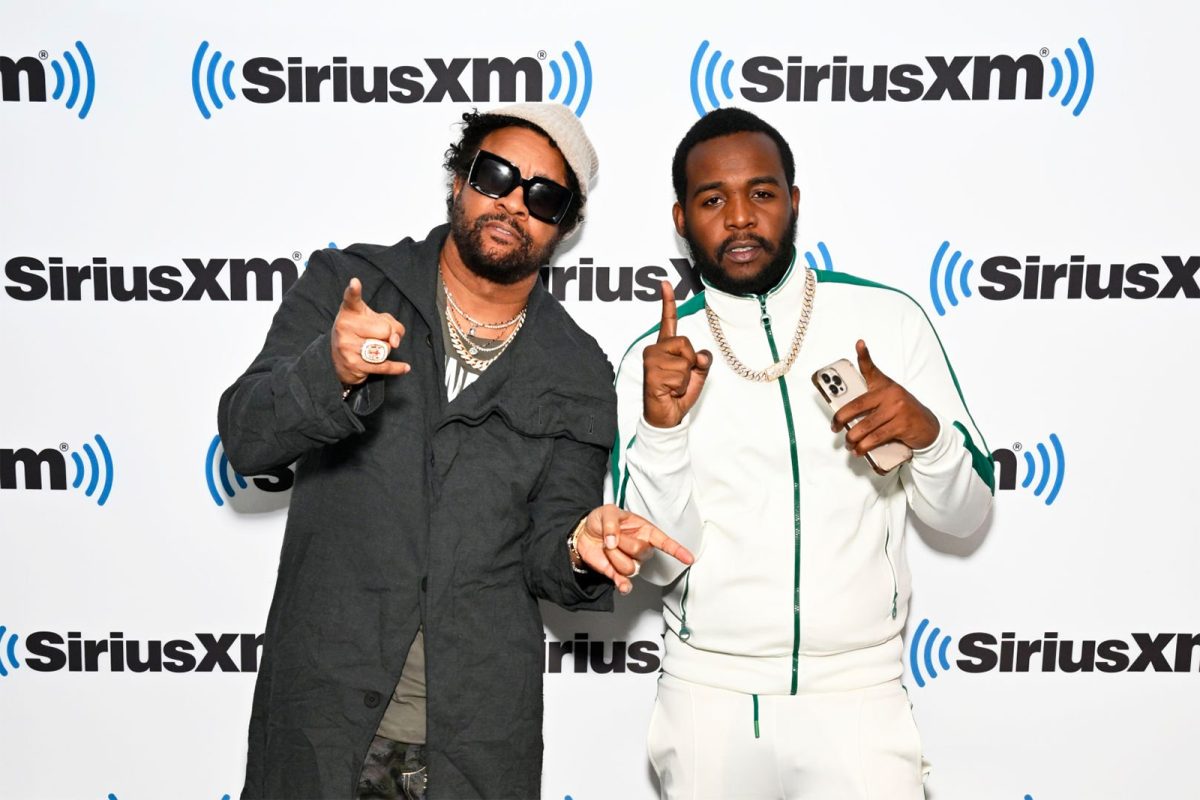Teejay Says Jamaicans Have A Taste For Depressing Songs: Recent Study Might Show Why

Dancehall star Teejay says Jamaicans appear to have developed a taste for songs with depressing lyrics, which focus on suffering and wretchedness, as opposed to happy, upbeat tracks.
During a joint interview on the International Talk podcast, featuring himself and Shaggy, the host DJ Norie pointed out that Afrobeats had become “so powerful right now that it is pushing the Dancehallers off.”
In response, Shaggy mentioned that Afrobeats was upbeat happy music, and was what he and Teejay had tried to accomplish with their new single dubbed Gyal Dem Time .
“Me and Teejay was talking about Afrobeats; we kept saying Afrobeats is happy music. It’s feel-good music, which is what he’s been saying for a while. Sometimes you gotta literally change the subject matter. A song like Gyal Dem Time is a fun song, and we cultivated it that way to talk about something else different…you put women into things, dudes are gonna follow,” the Boombastic singer had explained.
However, Teejay, in a generalized statement, said Jamaicans have developed an unwavering penchant for songs with lyrics in which the artist wallows in misery.
“Jamaica jus just different. If me an’ Shaggy mek a song an’ seh ‘ooh la la, ooh la la, ooh la la’ that totally happy. Jamaica people feel like *hisses teeth* mi nuh wah hear dat. But jus’ seh ‘right now mi stress, feel like chop off mi head’ everybody seh ‘yaaay!’” he explained, throwing up his hands in the air to mimic a celebration.
“Yuh figure Jamaica is a depressing country,” he added.

Shaggy, in concurring with the Up Top Boss’ points, admitted that Jamaicans have been enduring depressing times for a protracted period.
“A whole heap ah tings ah gwaan, within the economic system, the education system, and Chippy (Teejay) literally do a lot of those songs that are paying songs and which is part of why he’s very popular down there at the same time true and I mean because it’s relatable. From what he’s saying is relatable you know,” Shaggy said.
“I mean and I’m in Jamaica I see the sufferation… but I can’t tell you I’m living it. I’ve been doing this 30 years and I’m successful. So, there’s no way I’m going to sit there and compare my pain to somebody in the Garrison. I’m from The Garrison… but I learned early in life that ghetto means get out. I fight to get out every single day and I will fight to maintain to never go back,” he added.
Teejay’s point about Jamaican people preferring to listen to miserable songs, and Shaggy’s position that people relate more to the ‘sufferation’ songs at present, due to them enduring hardship themselves, is perhaps not without merit.
The STAR recently reported that Jamaica was ranked as the 55th most miserable country in 2022, economically speaking, according to Hanke’s Annual Misery Index.
“The index is the sum of unemployment (multiplied by two), inflation, and bank-lending rates, minus the annual percentage change in real gross domestic product per capita. This year’s index ranks 157 countries, and the higher the number, the less miserable the country is regarded to be. Jamaica’s ranking was impacted primarily by unemployment. The island is tied at 55th with Burundi, with the African nation’s biggest issue being inflation,” the publication reported.
In December last year, results from an islandwide study conducted by the Northern Caribbean University (NCU) in October and November 2022, showed that more than half (53 per cent) of men in Jamaica had been experiencing varying levels of depression since the COVID-19 lockdown, due to a large extent, the protracted lockdown of the Jamaican economy during that period.
According to the report, depression levels recorded were 41 percent mild, eight percent moderate, and four percent severe.
The study, which was titled ‘Assessing Depression in Jamaican Males: Post-COVID-19’, noted that nearly 10 percent of the 1,066 adult males surveyed, said that had attempted suicide or had suicidal thoughts or even wished they were dead, while another 25 per cent felt their life was not worth continuing.
The study also revealed that the desire to be dead was more pronounced among younger men, with 27 percent of those 18 to 25, wishing they were no longer living, six percent of those 26 to 29 expressing the sentiment while five per cent of those 30 and older wished they were in their graves.
The report also noted that the mental health of young people had been affected by the pandemic, and that they were “disproportionally at risk of suicidal and self-harming behaviours”.
Paul Bourne, interim director of institutional research at NCU, had also described the mental-health challenges experienced by Jamaican males, as “a silent killer that is been nurtured in the minds of these individuals”.
The study also said that despite the absence of objective inquiries into the healthcare-seeking behaviour of Jamaican males, they will continue to “hurt in silence” without state-wide psychosocial interventions geared towards coping and depression.
The study said depression among men can be masked and appear as atypical signs and symptoms such as aggressive behaviour, participating in risky activities, substance abuse and suicidal ideations, and as a consequence negatively affect their ability to keep relationships with their family and friends and to maintain a healthy lifestyle.
Of those who were experiencing severe depression, most of them dwelled in Kingston and Andrew (24 per cent), followed by Clarendon (18 per cent), St Ann and Manchester (13 per cent each), and St Ann and St James (eight per cent each).
Another similar study conducted NCU titled ‘The Prevalence of Depression in Jamaican women: Post-COVID-19’, and which sampled 1,186 women, found that all the respondents suffered from some degree of depression.
The study classified 22.8 percent of Jamaican women as having severe depression, and 0.4 percent suffered very severe depression. The majority were mildly depressed (68.9 per cent).
According to this study, education, employment and relationship status were causal factors of the depression experienced by Jamaican women, alongside increased workload, economic hardship, physical distancing, domestic violence and increased pregnancies.
Women 40 years and older were said to have experienced the highest level of severe depression (30.1 percent), 26 percent of those in the 30 to 39 age bracket, followed by 24.6 percent of women 18 to 20 years, and 17.7 percent of those between 21 and 29.
Single Jamaican women (17.9 percent) it said, had the lowest level of severe depression, followed by married women at (19.2 per cent), while Jamaican widows had the highest level of severe depression, followed by those who were separated (31.7 per cent).
Women from Teejay’s parish St James, were found to have the highest level of severe depression (53.4 per cent), followed by Kingstonians (47.3 per cent) and Hanover (35.1 per cent), with Clarendonians having the lowest level of severe depression, at 1.0 percent.
In 2022, Sean Paul, Shaggy, and Bob Marley were ranked as the most streamed Jamaican artists on YouTube globally. However, in Jamaica, neither of the three were ranked in the Top 20 among the most-streamed artists.
Last year, the top three artists on YouTube Jamaica were Chronic Law, Skeng, and Masicka.
The top five most-streamed songs on the platform in 2022 were: Jahshii’s Born Fighter, Skeng and Tommy Lee Sparta’s Protocol, Skeng and Stalk Ashley’s Talibhan, Masicka’s Suicide Note, and Skeng’s Life Changes.
